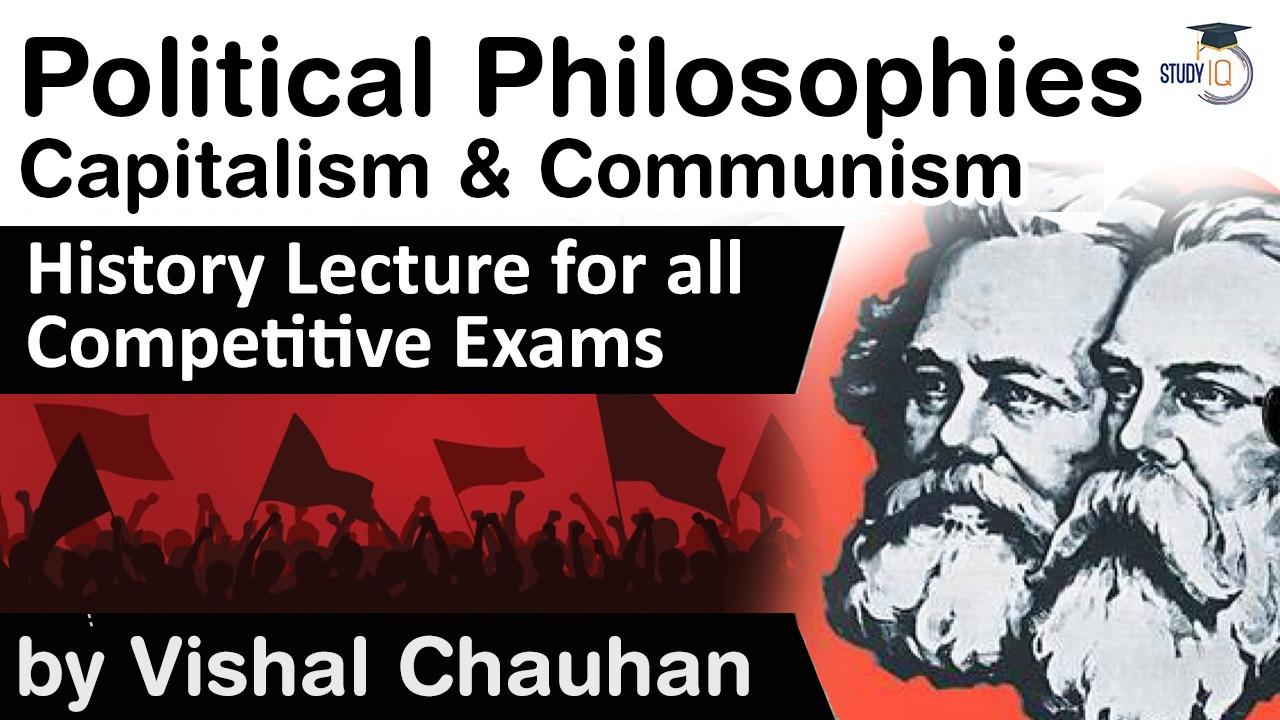Table of Contents
Introduction:
- The types of state that exists today and the nature of the relation it shares with its citizens has its roots in political philosophy such as Socialism, Capitalism, Communism and Democracy.
- Literally, political philosophy is the study of fundamental questions about the state, government, politics, Liberty, justice and the enforcement of a legal code by authority.
- It is ethics applied to a group of people, and discuss is how a society should be set up and how one should act within a society.
- Individual rights( that has the right to life, Liberty, property, the pursuit of happiness, free speech, self-defense, etc.) state explicitly the requirements for a person to benefit rather than suffer from living in a society.
- To begin with, Greek and Roman philosophers, like Socrates, Plateau and Xenophon, acted as torchbearers with their assessment of democracy and civil life, but as Roman Empire collapsed, those progressive ideas merged into feudal Europe, which infamously is being referred to as the dark ages( owing to corrupt clergy and ruling class and degradation of rational thought).
- Nevertheless, the favorable intellectual environment was produced during the Renaissance( between 14th and 16th century), in addition with enlightenment( late 17th and early 18th century) also called the ‘age of reason’, that circulated the ideas like reason, individualism, and skepticism.
Capitalism:
- Some form of capitalism has been dominant in the western world since the end of feudalism in the Middle Ages, and has provided the main, although not exclusive, means of industrialization throughout much of the world.
- It rise to prominence sprang out of the mercantilism of the 16th to the 18th centuries, and followed the rise of liberalism and Laissez-faire economics in western society.
- The capitalist mode of production, however, may exist within societies with the differing state systems( example liberal democracy, fascism) and different social structures.
- Capitalism is the economics and social system( and also the mode of production) in which the means of production are predominantly privately owned and operated for profit, and distribution and exchange is in a mainly market economy.
- But usually considered to involve the right of individuals and corporations to trade( using money) in goods, services, labor and land.
Brief History of Capitalism:
- Although some features of capitalist organization existed in the Ancient world( e.g. the early Roman Empire, the medieval Caliphate in the Middle East), capitalist economic practices became institutionalized in England between 16th and 19th centuries, and the spread throughout Europe and across political and cultural frontiers.
- With the emergence of modern Nation-States in the 16th to the 18th centuries, mercantilism(economic theory that the prosperity of a nation depends upon its capital, or economic assets, as represented by gold and silver, and that the volume of the world economy and international trade is unchangeable, encouraging a protectionist role for government) became dominant in Europe.
- The classical tradition in capitalist economics thought emerged in Britain in the late 18th century, with Adam Smith, David Ricardo( 1772-1823) and John Stuart Mill, as well as with Jean-Baptise Say in France.
- Important contributions to the theory of property are found in the earlier work of John Locke, who had argued that the right to private property is a natural right.
- Adam Smith’s criticism of the Mercantile system in his “The wealth of Nations” of 1776 is often considered the beginning of classical political economy.
- Smith devised a set of concepts that remain strongly associated with capitalism today, particularly his theory of the “invisible hand” of the market, through which the pursuit of individual self-interest unintentionally produces a collective good for society.
- He criticized monopolies, tariffs, duties, another state and force restrictions of his time, and he believed that the market is the most fair and efficient arbitrator of resources.
- Smith’s theory was improved by David Ricardo, one of the most influential economists of modern times, developed the ‘Law of Comparative Advantage’( which explains how trade can benefit all parties involved as long as they produce goods with different relative costs) in his “The Principles of Political Economy and Taxation” of 1817, which supports the economic case for free trade, a cornerstone of capitalist thinking.
Criticism:
- Marx offered the staunchest critic of capitalism in his work “Das Kapital” in which he argued that, the owners of capital are the dominant capitalist class(or Bourgeoisie), and the working class( or proletariat) who does not own capital must live by selling their labor power in exchange for a wage.
- According to Karl Marx, capitalism is based on the exploitation of workers by the owners of capital, and under his theory of historical materialism, it represents just one of the stages in the evolution of a society which would be overthrown as the workers gain class consciousness and take control over the state.
- Many political thinkers shifted their poles between capitalism and communism as they deemed fit for their immediate society because the problems they faced differed from society to society.
- For example, Fascist opposed both international socialism and free market capitalism, arguing that their views represented a third position.
- They claimed to provide a realistic economic alternative that was neither Laissez-faire capitalism nor Communism.
Communism:
- Widely accepted as contrast of capitalism, Communism grew out of the socialist movements of 19th century Europe and the critics of capitalism during the industrial revolution.
- Almost among these critics were the German philosopher Karl Marx and his associate Frederick Engels, and their ground breaking “Communist Manifesto” of 1848, the defining document of the movement, offered a new definition of communism and popularized the term.
- Communist thought it also accredited to communist ideas back to ancient times, particularly in the work of Pythagoras and Plato.
- For instance, it is argued that Plato’s Republic described in great detail a communist dominated society wherein power is delegated into the hands of intelligent philosopher or a military Guardian class and rejected the concept of family and private.
- In addition, in 16th century, English writers of Thomas More portrayed a society based on common ownership of property in his treaties ‘Utopia’, whose leaders administered it through the application of reason.






















 WhatsApp
WhatsApp